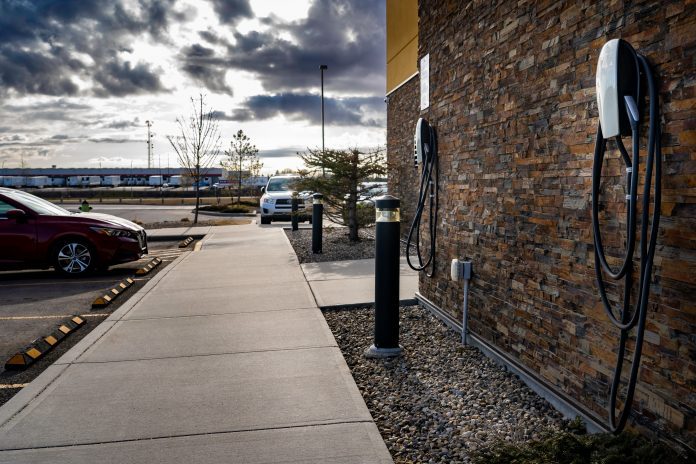No matter how you feel about the EVs on your lot, they wouldn’t be selling as well without tax credits. These incentives have been a game-changer, nudging many drivers from their old gas guzzlers to shiny, eco-friendly electric vehicles.
Yet, despite the allure of these credits, EV sales have not been skyrocketing as one might expect. Even with the financial push from tax incentives, growth in EV sales has been sluggish, with recent figures showing only modest increases. This sluggishness highlights that the landscape could be more complex.
Political winds are always shifting based on the latest polls, so these incentives might not be as steady as a Tesla on autopilot. How will potential changes affect your dealership? Let’s dive into what could happen and how you can steer through these changes like a pro.
EV Politics and Its Impact
Here are some scenarios that may unfold in the coming months and years:
If the Democrats Stay in Power: President Biden’s EV-purchase tax credits, implemented through the Inflation Reduction Act starting January 1, 2023, have reduced the purchase price of new EVs by up to $7,500 for many buyers.
A Democratic administration might continue or enhance these incentives, leading to a steady stream of customers eager to take advantage of the savings. Make sure your inventory is well-stocked with the latest and greatest EV models to capitalize on this opportunity.
A Republican Turnaround: If Republicans take the reins, we might see a rollback or significant alteration of these incentives. Some, like Rebecca Lindland, senior director of industry data and insights at Cars.com, point out that incentives may primarily benefit early adopters who were already inclined to buy an EV. A reset of who the incentives go to may actually help sales.
In a recent visit to Pennsylvania, former President Trump addressed whether or not to keep the tax credit, saying, “I’m not making any final decisions on it. I’m a big fan of electric cars, but I’m a fan of gasoline-propelled cars, and also hybrids and whatever else happens to come along.”
However, he said he would rescind the Biden administration rules forcing automakers to build more EVs and plug-in hybrids to meet stricter emissions standards.
If incentives disappear, preparing for a potential dip in EV sales is crucial, which has already seen only modest growth. Instead, highlight other appealing aspects of your EV lineup—like advanced tech features, performance, and environmental benefits.
Legislative Roller Coaster: Legislative changes can introduce unexpected challenges. Budget cuts or new regulations might significantly alter EV sales and production. Staying informed about these developments will help you adjust your strategies promptly.
Action Steps for Dealerships
Considering these potential changes, here are some actionable steps for dealerships:
Expand Your EV Lineup: Stocking a diverse range of EV models—from budget-friendly options to high-end vehicles—will help you cater to a broad spectrum of customer needs, regardless of the state of tax incentives. Many dealerships may be constrained by the models offered by OEMs, but this is where pre-owned sales can make a difference.
The Federal government offers up to $4000 in incentives for pre-owned plug-in and fuel cell vehicles to dealers registered for the program. Being able to sell used EVs and directly benefit from these tax credits, if registered with the IRS payment system, could provide significant advantages for your dealership.
Rethink Your Marketing Playbook: Shift your marketing focus from tax credits to the broader benefits of EV ownership. Emphasize the environmental impact, cutting-edge technology, and overall driving experience. It’s not just about saving money; it’s about making a difference.
Train Your Team: Prospective EV buyers come with a range of knowledge levels—some are well-informed and others might only have a basic understanding. It’s crucial that your sales team is equipped with comprehensive knowledge about the EV models you offer. Ensure they are well-versed in both the technical specifications and the broader benefits of electric vehicles. And it doesn’t hurt to have knowledge of various financing options available for consumers such as EV Life.
This expertise will not only help in confidently addressing customer questions but also in guiding discussions about potential changes in incentives. Being knowledgeable instills confidence in customers and can make the difference between closing a sale and losing it to a competitor.
Financial Foresight: Prepare for potential fluctuations in sales by setting aside a budget for marketing and promotions. Being financially prepared will help you manage any sudden changes effectively.
Get Involved: Engage with policymakers and industry groups through dealership associations or individually. Your voice matters in shaping the future of automotive incentives, so staying involved can help you stay ahead of potential shifts.
Planning Ahead
The path ahead for EV tax credits and sales may be bumpy, but your dealership can stay on track with the right strategies.
By diversifying your EV inventory, refining your marketing approach, preparing financially, and actively participating in policy discussions, you’ll be well-positioned to navigate the coming waves of change.



